John Thackara: ‘Strange’ ideas don’t sound so strange in strange times
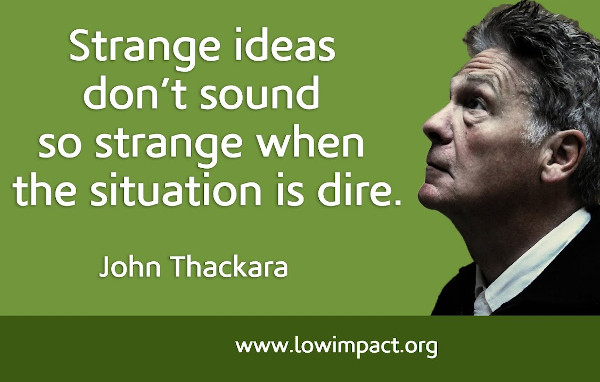
This is part 2 of a conversation with John Thackara. In part 1 we talked about what the future might hold for humanity, and here we talk about what our responses might be. ‘Strange’ ideas might be required for strange times.
There’s a World Economic Forum risk report from 2016. It shows a lot of global problems, from financial panics, war, mass migration, pandemics. The things they were worried about then are happening now. I think we’re in the middle of a crash – it’s not some future event.
I guess our task is to help get things in place that can catch people if everything does fall over.
That’s why your work is inspiring to me. You demonstrate lots of people who are involved in mutual credit, or mutual support in lots of ways – for the most part small-scale. The tools and the platforms you’re talking about – I think we have to be ready to learn. I’d be surprised when your book comes out, if it doesn’t have a big readership, because people will think that now is the time that we have to learn about this stuff. Before, it was people like me, with strange ideas, or people with strange ideas about money – but those ideas no longer seem strange when the situation becomes dire. But now people are ready to learn and to take these ideas forward.
I hope you’re right. My main premise is that the current money system is used to buy and sell, but also to hoard, accumulate and become wealthy with. It concentrates. As long as that’s the case, money will gravitate towards the concentrated wealth, because money attracts money, and gives access to the political system, so that you can get your way. So I wanted to ask you – do you think we can vote our problems away? Is there a party political solution?
I don’t think so. I think voting is at the end of a process of change, rather than something that causes change. The choices we’re given are very dispiriting. For example, I was talking with a group of students in Istanbul, who asking if there was a risk of starvation if the pandemic situation got worse. Every Turkish student said no – they would go and stay with a relative who had a farm. They all had a relative with a farm, and had no anxiety about city life collapsing. We don’t tend to have that luxury in Western Europe, but most people in the world have a plan B. They have support systems that we’re only dimly aware of. I mentioned in my book that here in France there’s a large North African community. I asked them if they’d be able to get welfare support from the French state if things got bad, and they tell me they don’t need it. If someone needs food, or have a sick child, they’re looked after by the community. It’s all organised.
Yes, I’ve been talking with people at Grassroots Economics, who are spreading mutual credit through East Africa. They base the mutual credit groups on community groups called Chamas. That’s the key to their success I think. We could do with a similar sort of ‘glue’ in communities in the West.
A lot of it is here in embryonic form.
What do you say to people who believe that technology will solve our problems?
Whenever I hear that I tend to back off, because I’m trying to train myself not to get into pointless arguments. If someone believes that, I’m not going to change their mind. I say that I do work with technology, and with tech companies. Helping farmers sell their food directly to people in the city, for example. If they can bypass the supermarkets and sell direct to consumers, that’s very good for small farmers. Technology can also create relationships that weren’t there before. It’s a way for people to have a relationship with the people who grow their food.
I wanted to come back to your article about Ikea, which I thought was fascinating. A company that wants to be sustainable, but also wants to keep growing forever. It’s very difficult to explain why this is a problem, because they’re operating in a system where all their competitors are trying to grow forever too – so they have to grow or die. Jason Hickel is good on this subject, but how do we explain that a perpetually-growing economy is suicidal, when a lot of people’s careers depend on them not understanding that?
Jason Hickel is a brilliant guy who has taken it upon himself to persuade us all that degrowth is a good idea. I think that’s admirable. It’s what I’ve been trying to do for the last 30 years, without much success, and because I don’t have enough stamina, I stopped. Ikea is a good example. I was in a room with 200 people whose whole lives are about making Ikea’s activities sustainable. At that meeting, somebody told me that Ikea planned to double in size in the next 10 years. So anything that this company did to reduce the amount of wood in its furniture, or get wood from sustainable sources etc. was going to be undone by the company doubling in size. Those people’s jobs, mortgages, social status, was all about growth. I don’t know how my arguments would get through to them. But it’s biophysics – you can’t expand something to infinity on a finite planet – you just can’t. So I’m afraid I think that the growth problem will only be solved by the collapse of the economy. So if that’s going to happen, what do we have to do to prepare – which is where our work comes in.
It’s a shame we can’t get people to understand the problem with growth before some kind of crash happens.
Don’t you think Covid has changed that for a lot of people? Questions about how to feed their family, or where are they going to live, are problems for millions of people now – even in rich countries. It’s less about questioning growth now, and more about how people can provide the basic necessities of life. In America, millions of people are falling through the safety net (not that they have much of a safety net) and becoming homeless etc. In Detroit and other rust-belt towns, there are incredible networks of social solidarity developing. People aren’t left to starve, because they help each other. I think it’s human nature. I’m not saying I’m positive about the future, but there are a lot of little initiatives that we can learn from.
So you contacted me about my upcoming book, about building a new economy around a mutual credit core. What interested you about that?
I have the same relationship with money and currency experts as I do with climate experts. I can see it’s important, but have never understood what they’re on about. It all seemed very complicated. But now I think it’s time to ask what’s available to help people to provide the necessities of life for themselves – long-term as well as the immediate stuff. In my modest reading, I’ve seen that mutual credit has a long history, and that yes, it has a role now. So people who understand the madness of the system that we’ve all swallowed, want to know what we’re going to replace it with. What’s going to replace banks and hedge funds and all the other damaging institutions? The good thing about your website is that you can see all sorts of people doing things – you don’t have to be a genius or a saint to do it. What I find inspiring is people working in co-operative institutions and providing credit to each other co-operatively. We can all do it – it’s just taking that first step.
I had a conversation with a cousin who owns a small factory in the West Midlands. She said that there’s not going to be much money about. I asked: what if there was a system in which your customers could still buy from you if they had no money, and you can still buy from suppliers if you have no money – and she was all ears. I told her about mutual credit in about 30 seconds – everyone has an account, set at zero. If you buy, your account goes down, if you sell, it goes up. But it’s just numbers in an account, not money. She got it immediately. In my experience, small business people get it straight away. You don’t need a PhD to understand this stuff.
Yes, it’s about building connections between people, so that you know they’re reliable. I live in a small town in France, and all local work seems to be done without paperwork. We all live in the same town, and we know each other. Sadly, I can’t give them a sustainability lecture to pay off my bills – but local business people can provide things for each other. I remember the generation before me saying: learn a trade – become a plumber (etc.) – you’ll be alright then. I should have listened to them. Everybody needs plumbers, no matter what system we’re living under.
And the beautiful thing now is that the software, protocols and technology exist for all of these little networks to federate together and trade with each other. So if you can’t find what you need in your group, you can trade with a business in another area. But you know they’re part of a trusted group too.
So how do you think it can take off, beyond just a few passionate people?
It’s already taken off in Africa. Grassroots Economics have 50k households signed up in Kenya, and did $3 million worth of trade last year, but without money. They’re keen to connect with schemes in other parts of the world. I interviewed Mercedes in Colombia. She went over to Africa to see what they were doing, and she’s doing the same thing in Colombia now. Europe and N America might be latecomers to the party. In Africa, they don’t bother explaining the philosophy behind it. Just give people a tool for moneyless trading, and they’ll use it.
That’s what I hoped you’d say. If someone came along to give us the tools to do it in our village here, I’m sure they’d do it. I suspect they’re doing it informally already, to be honest. I think it will happen, for sure.
But in the West – I’m part of a group called Mutual Credit Services who are building a package to offer to groups who would like a mutual credit club. We’re talking with business networks, accountants, local authorities. They can all host a mutual credit club, and straight out of the box, they’ll be able to federate and trade with other groups. In Sardinia, there’s a mutual credit group called Sardex, doing 50 million euros worth of trade per year. It works. It just needs a stimulus to get it spreading. I think the economic effects of Covid lockdowns could be just the stimulus.
I was talking to someone from the Open Food Network, who connect people on a platform, and provide an online shop with customers for small farmers. Since the lockdowns they’ve grown massively.
I’ve interviewed Lynne from the Open Food Network.
Ah, fantastic. There must be a way to bolt together the OFN and mutual credit?
We need to get a project up and running in the UK, and then we’ll be talking with lots of co-ops, including food co-ops and the OFN. We’ve got co-op people in the group. The Preston Model is interesting as well. They give priority to small, local businesses when it comes to local authority procurement, and they’ll help set up co-ops if there’s a local niche that needs filling.
The crucial thing for me is that you don’t expect people to learn everything themselves. You need some sort of buddy system – person-to-person – for people who might not understand the technology. When people get it, they then help other people.
We need local ‘champions’ – whether they’re part of the local authority, part of business networks, accountants or just interested people in the community.
I’m impressed by the number of people who are looking for ways to contribute in their community. So many people want to do things differently. I was talking to a GP who’s tired of treating people with illnesses connected to bad food, bad housing, pollution etc. – and now she wants to go ‘upstream’ and talk with food growers, home builders etc. But as a GP, she finds it very difficult to get out of her GP box. It’s the same with lots of professions. Imagine if you could go to your local library and learn how to set up a mutual credit club. Librarians are brilliant – very good at explaining things. Maybe they could be local champions?
I think there’s an enormous pool of people who’d like to help grow a new kind of economy locally, if they knew what to do. Mutual credit is certainly something they could do.
People in the tech industry got the idea that not enough people understood computer coding, so they set up Code.org – a sort of pyramid scheme without money, to help people learn. There’s a free hour, then thousands of courses. They’ve had something like 200 million people do the free hour. So I think a model like that could work for mutual credit – just try it out for an hour. Those who get it and like it could become champions.
That’s a very good idea. So finally, after your career in sustainable design and sustainability generally, what do you think is most likely to happen to humanity? Where do you think we’re headed?
I think we’re going to muddle through in conditions of great chaos, and uncertainty, then I don’t know. It’s getting really bad in some parts of the world, like India. But they have brilliant people, and they get things sorted out somehow. We’ll probably do the same. We won’t prevent all the bad consequences, but if we can stop thinking in abstractions and work with each other, we can achieve a lot.
I think you’re right. We’ve recently been contacted by someone in India, who’s living in a city of 4 million people, and he wants to start a mutual credit club in his city. I think people in India are so used to getting by, and are very innovative, that that could be very fertile ground.
People tell me that it’s in these smaller cities (by Indian standards) that change is going to happen first.
OK John, it’s been lovely talking with you.
Good luck with the book. It’s been a pleasure. I’m going to be putting the word out.
Highlights
- Before, it was people like me, with strange ideas, or people with strange ideas about money – but those ideas no longer seem strange when the situation becomes dire. But now people are ready to learn and to take these ideas forward.
- Most people in the world have a plan B. They have support systems that we’re only dimly aware of.
- But it’s biophysics – you can’t expand something to infinity on a finite planet – you just can’t. So I’m afraid I think that the growth problem will only be solved by the collapse of the economy. So if that’s going to happen, what do we have to do to prepare – which is where our work comes in.
The views expressed in our blog are those of the author and not necessarily lowimpact.org's
3 Comments
-
1Chrissie June 13th, 2021
What a great conversation.
-
2Daniel Scharf June 13th, 2021
Maybe Climate and Nature Emergency Centres (hopefully there is one starting near you) could have space dedicated to a mutual credit ‘bank’? This could be under the guise of a skills sharing database?
-
3Dave Darby June 14th, 2021
Daniel – definitely something like that. Lots more on that sort of thing coming soon.




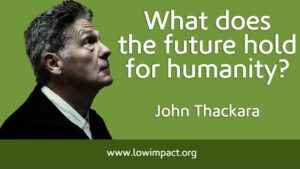 John Thackara: What does the future hold for humanity?
John Thackara: What does the future hold for humanity?
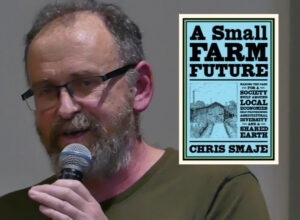 Review of ‘A Small Farm Future’ by Chris Smaje
Review of ‘A Small Farm Future’ by Chris Smaje
 Can you imagine a world without money? Summary of the ‘credit commons’ idea and how it could be achieved
Can you imagine a world without money? Summary of the ‘credit commons’ idea and how it could be achieved
 Community
Community
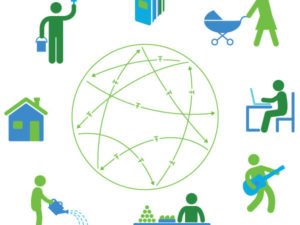 Mutual credit
Mutual credit
 Philosophy
Philosophy
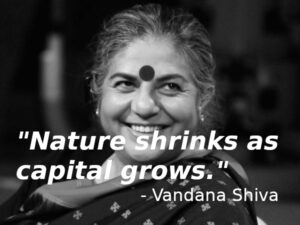 Steady-state economics
Steady-state economics
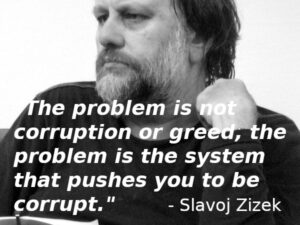 System change
System change
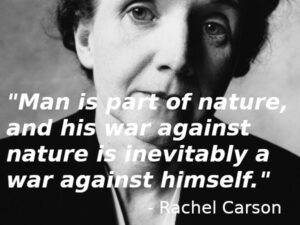 The 'nature problem'
The 'nature problem'


